When it comes to caring for stone floors in your Cambridgeshire home, knowing what type of stone you have is essential. Different stones require different cleaning products and methods, and using the wrong ones could damage your beautiful flooring. Whether you’ve just moved into a new home or want to revamp your current stone floors, learning to identify your stone can save you time, money, and effort in the long run.
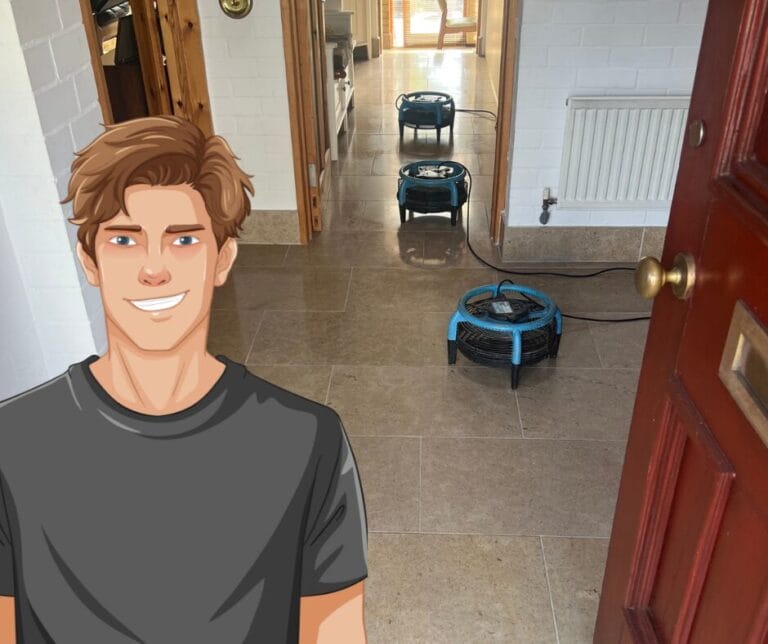
So, let’s look into how you care for your stone floor in Cambridgeshire and why it’s so crucial for proper cleaning.
Not all stones are created equal. Some are more porous, some are softer, and others are more resistant to staining. For instance, limestone is a softer stone and requires gentler cleaning products, while granite is much harder and can handle stronger chemicals. Using the wrong cleaning products leads to permanent damage like staining, scratching, or erosion. This is why understanding what type of stone you have is the first and most crucial step in proper stone floor care.
Here are some of the most common types of stone flooring found in Cambridgeshire homes:
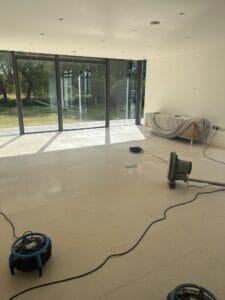
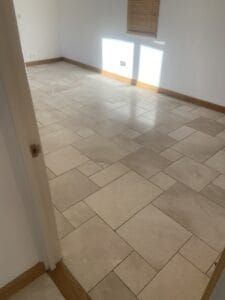
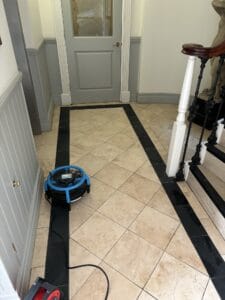
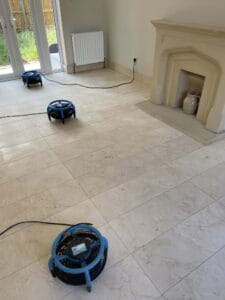
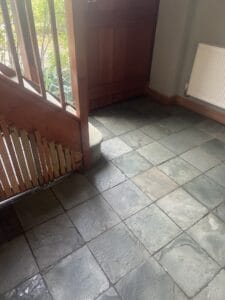
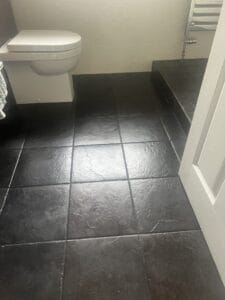
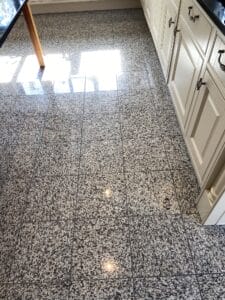
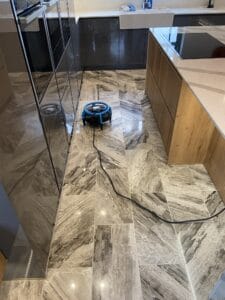
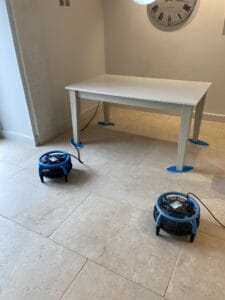
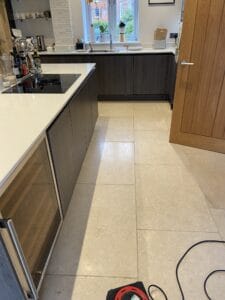
6. Sandstone
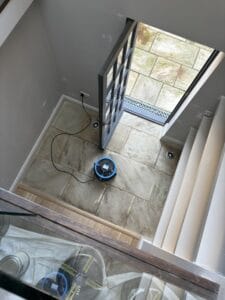
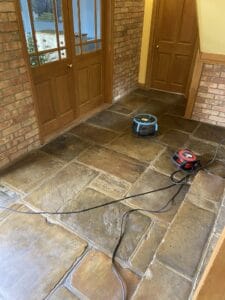
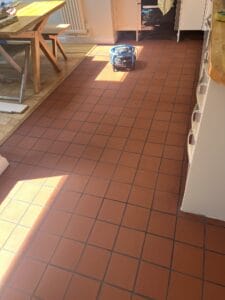
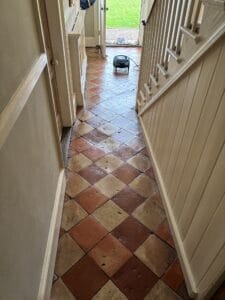
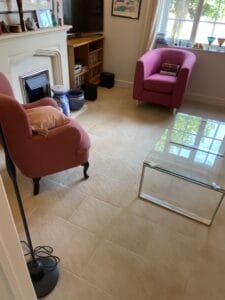
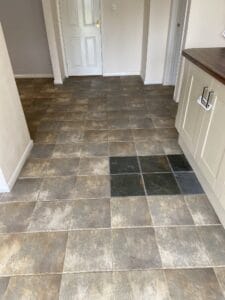
If you’re unsure of what type of stone you have, here are some tips to help you figure it out:
1. Check the Colour and Texture. Colour and texture can give you the first clues about the type of stone. For example, if your floor has a polished, glossy finish with prominent veining, it’s likely marble. If it feels rough and grainy, it could be sandstone or slate.
2. Look for Patterns Some stones, like marble, have distinctive veining patterns, while others, like granite, have speckles. Slate often has layers, which can give it a unique look.
3. Test for Porosity Stones like limestone and travertine are more porous than granite or slate. A simple test is to drop a small amount of water onto the surface. If it absorbs quickly, your stone is likely more porous and will need a gentler cleaning method.
4. Consult a Professional If you’re still unsure about the type of stone you have, it’s always a good idea to consult a stone cleaning professional. They can accurately identify your stone type and provide advice on the best cleaning products & methods to use.
No matter the type of stone you have, regular cleaning & maintenance is the secret to keeping your floors looking their best. However, it’s essential to match your cleaning methods to the specific needs of your stone. Using the wrong cleaner can damage the stone or reduce its lifespan. For example, using a vinegar-based cleaner on limestone can erode its surface, while acidic cleaners can cause etching on marble.
In Cambridgeshire and Suffolk, where many homes feature beautiful stone flooring, ensuring proper care is vital for maintaining the value and appearance of your home.
Even with regular maintenance, stone floors can accumulate grime in the pores and grout lines over time. Professional stone floor cleaning services are the best option when your floors need more than surface cleaning. A professional cleaner can deep clean and reseal your stone to protect against future damage.
At Art of Clean, we specialise in stone floor cleaning for Cambridgeshire homes, ensuring your floors stay as stunning as possible. Whether you’re dealing with stubborn stains or just need a deep clean, our expert team knows exactly how to treat each type of stone.
Feel free to contact us for more information on stone floor care or to schedule a cleaning service that fits your needs.

For further advice or information on our Carpet and Soft Furnishing care, please do not hesitate to contact the Art of Clean team on 01223 901551 in Cambridge. Our services include Carpet Cleaning, Upholstery Cleaning, oriental and area Rug Cleaning, Curtain Cleaning, Patio, and Driveway Pressure washing, Leather Cleaning, Stone and Tile Floor Cleaning, and Wood Floor Sanding and Restoration. We also supply new flooring and carpets through our sister company Art of Flooring. Farthings Cambridge provides our Dry-Cleaning service